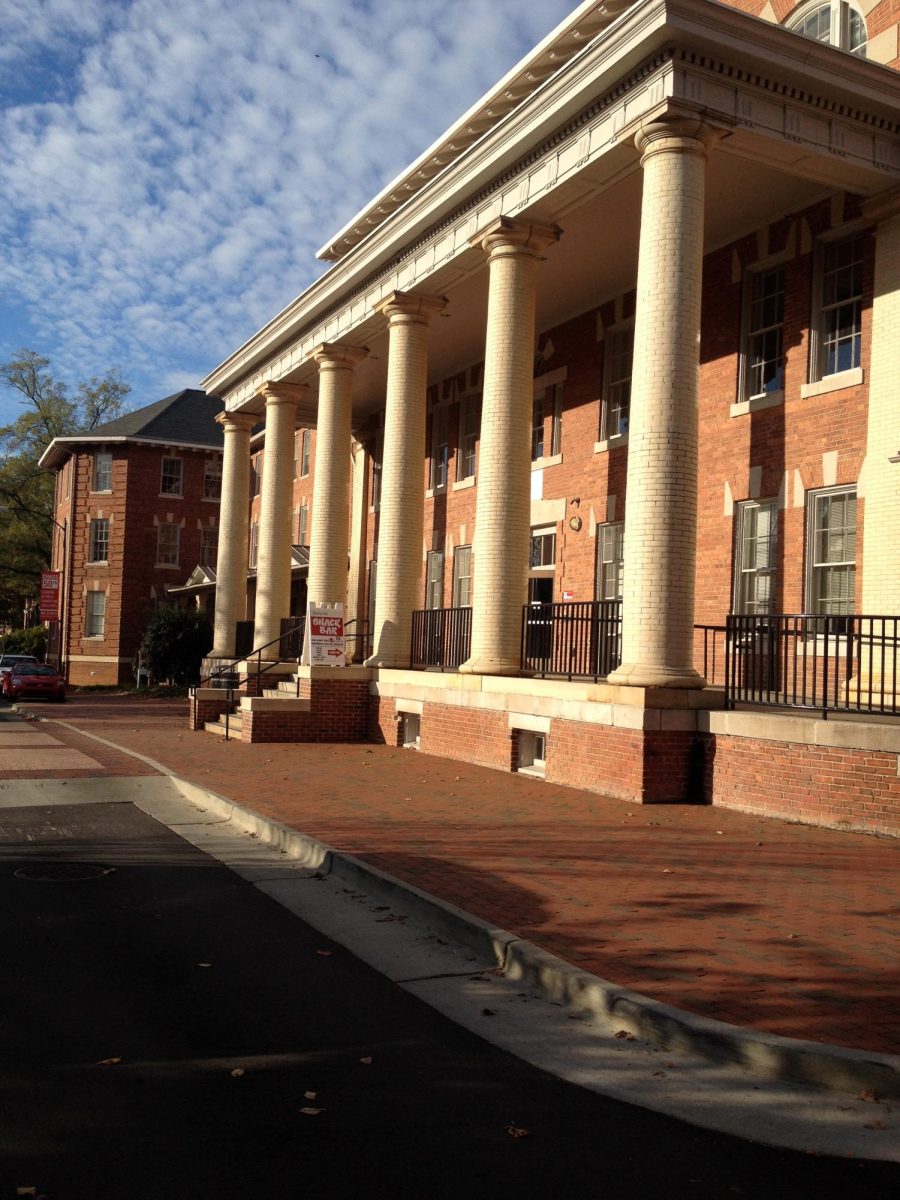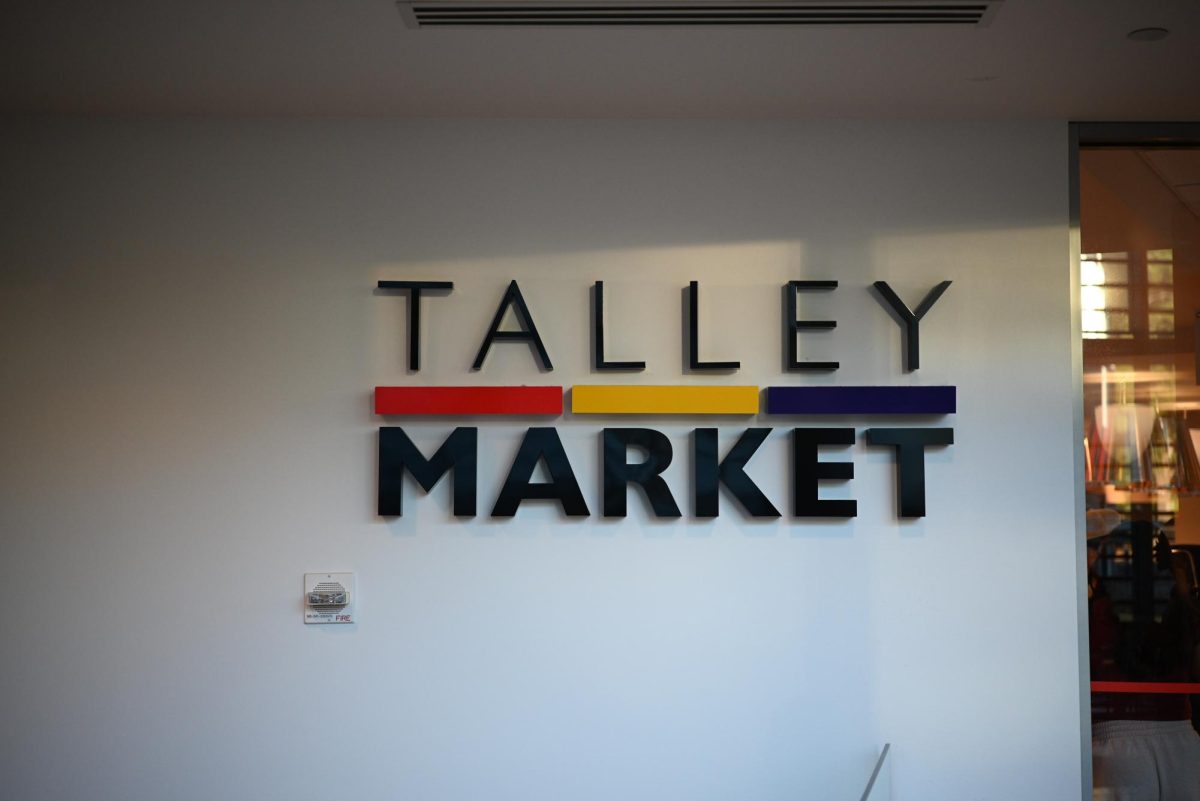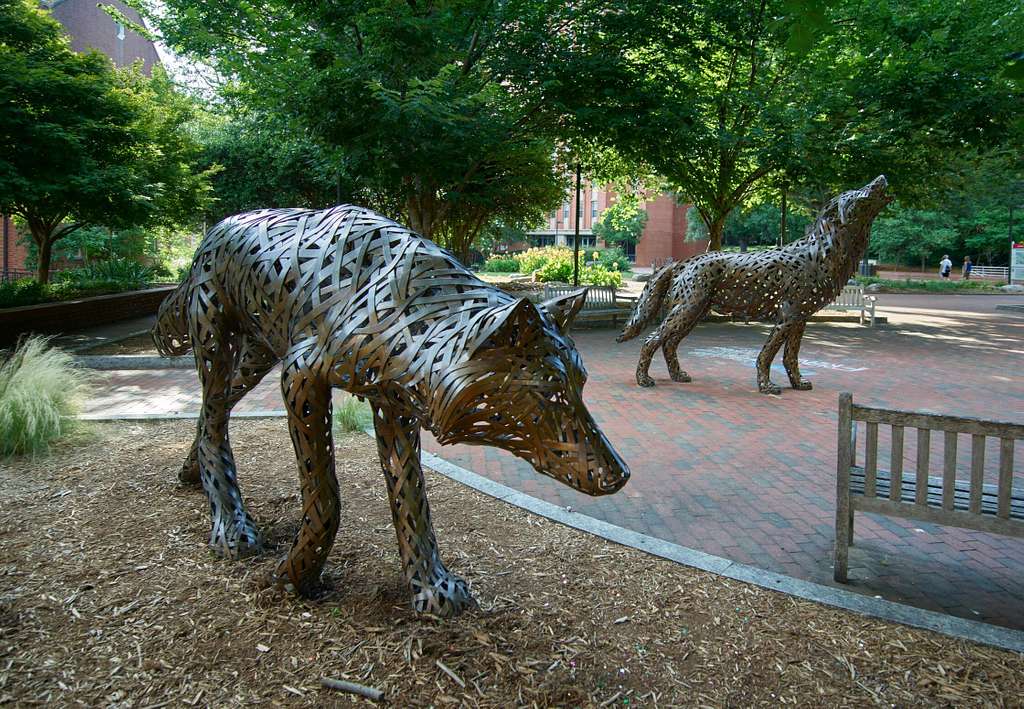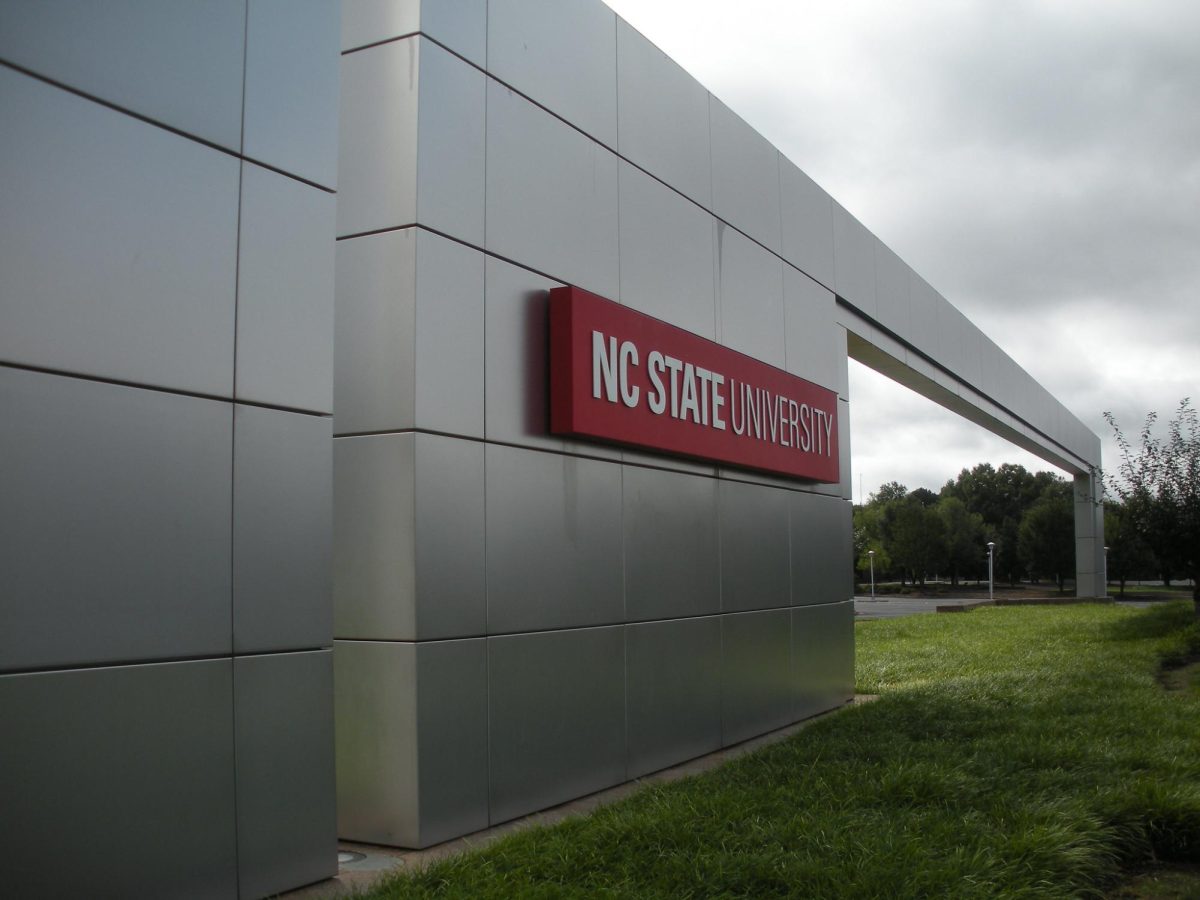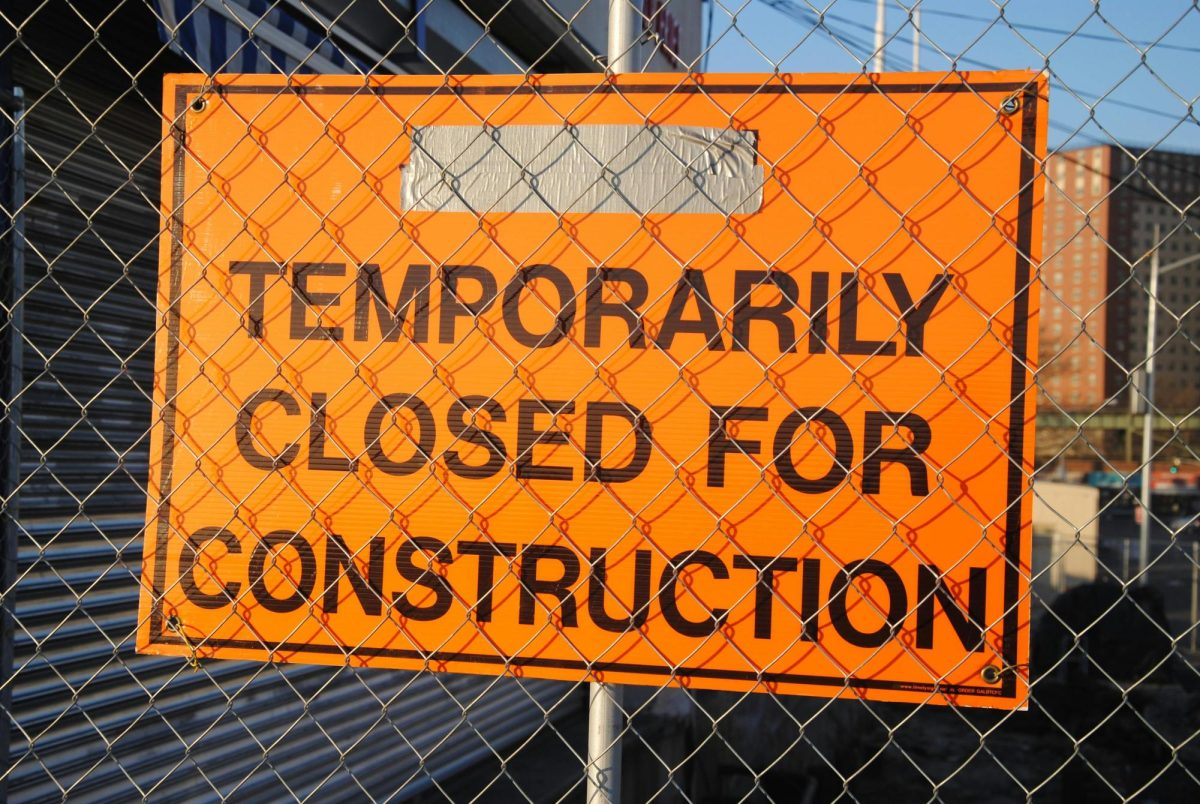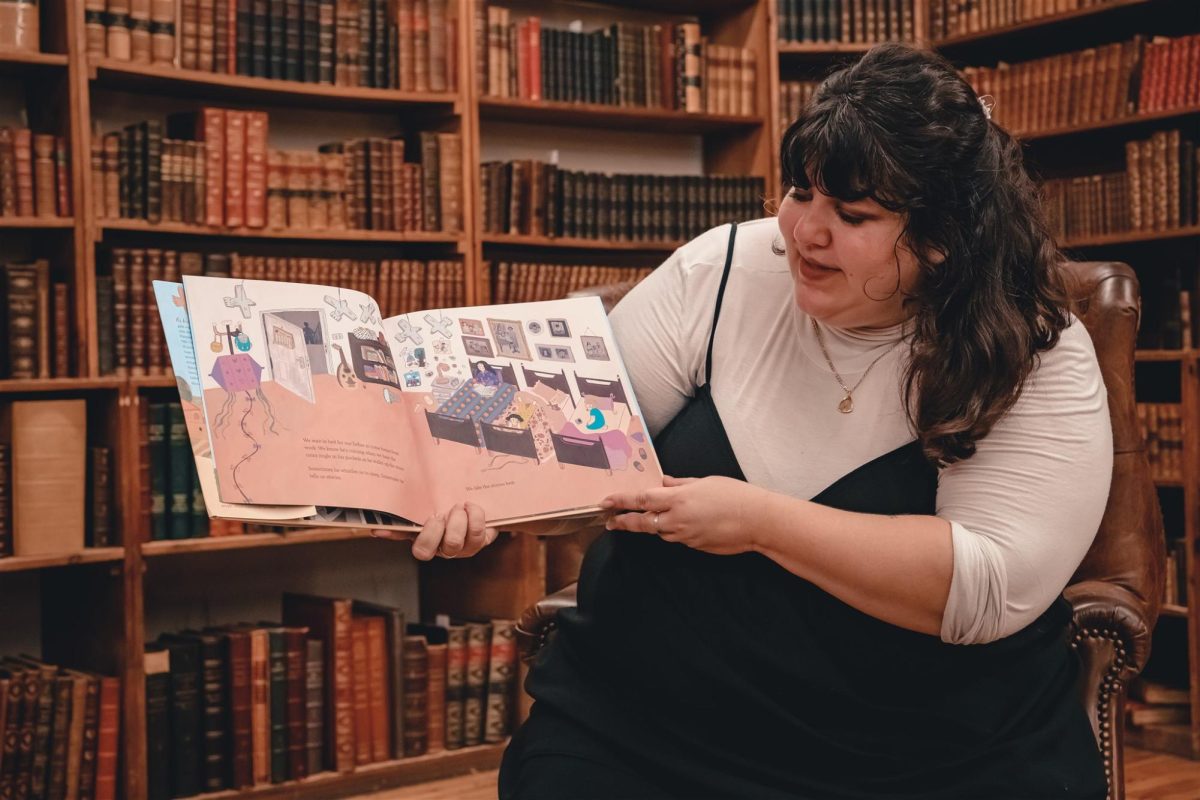Carl Hintz | Correspondent
On October 10 Raleigh residents will vote for Raleigh mayor, City Council and a $206.7 million transportation bond. On September 25 the community service organization Queen In You, in collaboration with Society of African American Culture, hosted two of the three Raleigh mayoral candidates on campus.
Blaike Bibbs, a fourth-year studying political science, is the event coordinator for the NC State chapter of Queen In You, a community service organization that was founded at NC A&T University and provides mentorship, primarily to minority girls and young women.
“The people that are elected locally, they are the ones who decide everyday decisions, they decide how things go in regards to transit, and in regards to affordable housing, the availability for some people to even have food,” Bibbs said.
Nancy McFarlane, the current mayor of Raleigh who is not affiliated with a political party but has been endorsed by the Democratic Party in previous elections, is running for reelection against Charles Francis, a Democrat, and Republican candidate Paul Fitts, who was not at the event. McFarlane was first elected mayor of Raleigh in 2011 and won reelection in 2013 and 2015.
At the mayoral candidates’ event, both McFarlane and Francis discussed the importance of affordable housing, transportation and jobs. Francis arrived to the event after McFarlane left so the candidates were not able to respond to each other’s comments.
“I felt like a lot of the issues they were dealing with were pretty similar, especially with housing. It was a major [issue] for both of them,” Bibbs said.
McFarlane discussed her efforts to increase affordable housing by having the city buy up land that becomes available and by working with developers. “We are very focused on the integration of transit and affordable housing,” McFarlane said. She also discussed how the issue of affordable housing is about the overall cost of living.
Khadija Parker, a third-year student studying psychology, said, “The issue is not only [the affordability of housing] but also, jobs, healthcare, education, feeding your kids, taking care of yourself, maintaining your house.”
McFarlane also discussed some of her environmental initiatives, including converting Raleigh vehicles to natural gas that is produced in the process of wastewater treatment. She said she is especially proud of her work on the new Dorothea Dix Park.
“My goal is to make sure that this is a place that has economic opportunity for you and for everybody to make this a place where you want to live with a great quality of life,” McFarlane said.
Charles Francis, who is originally from Raleigh, is a lawyer by training.
“We need to create a platform where poor people and low-income people and people of color can succeed and rise also,” Francis said. “There is nothing more important to me than social mobility. In the hundred years that my family has been in Raleigh we have had that rise in our family. And what I’m looking to see is that rise in other people’s family. And not over a hundred years, but over a much shorter period of time.”
Francis said he thinks McFarlane is not doing enough for affordable housing. He said that he would focus on using tax credits as a mechanism to get developers to put affordable housing in place. “The city needs to be more aggressive in organizing tax credit development,” Francis said.
McFarlane did not discuss using tax credits to finance affordable housing, but she described how the city works with multiple partners to maximize the units they can build with their funds.
“We also do a lot of work in southeast Raleigh especially with the elderly, with home renovation. we go in we work on people’s homes so they can stay there,” McFarlane said. “We work with the county to get taxes deferred for the elderly that are lower income so they can stay in their houses as property values rise and property taxes go up.”
On the more general topics of poverty and child hunger in Raleigh, McFarlane discussed her work with Wake County, which is responsible for health and human services.
“We are opening a center in conjunction with wake county, that is Oak City Services,” McFarlane said. “It’s sort of a one stop place that people that need help can go. All of your city county state, all the services are in this one spot.”
McFarlane also described how she worked to get food stamps approved by as payment at the Raleigh Downtown Farmer’s Market, and her concern about getting food into food deserts.
Malik Zeigler, the president of SAAC and a fourth-year studying political science, helped make the questions for the candidates and coordinate the logistics of the event.
“We should be paying attention to how these mayors are going to handle racial situations now, because racial tensions are high in America, nationwide,” Zeigler said.
In response to questions about Charlottesville, Virginia, where a white supremacist killed a counter protester, McFarlane described how Raleigh has a well-developed capacity to respond to protests or issues of public safety.
She also discussed how after Akiel Denkins was killed by police in southeast Raleigh, the response of the faith community was very important and that she developed a series of community conversations between community members and police officers.
Francis said that he thinks McFarlane does not represent the whole Raleigh community and that the mayor should do more to engage with the public and to listen to the responses of advisory committees. “The city needs to include and respect more people in the way that it operates,” Francis said.
Parker said, “Definitely get to know the candidates, definitely get to know what they stand for. North Carolina has a very big poverty population and it’s very important to keep them in mind when looking at mayors and what they want to do and how it’s going affect the poor because they already have it hard enough day to day.”
October 10 Municipal Election
October 7: Last day of early voting (ends at 1 p.m.)
October 10: Election day for Raleigh (6:30 a.m. – 7:30 p.m.)
November 7: Runoff election for Raleigh if no mayoral candidate receives a majority of the votes
The closest one-stop early voting locations is Method Road Community Center near Meredith College. For a full list of voting sites in Wake County, visit www.wakegov.com/elections.
Method Road Community Center, 514 Method Rd., Raleigh 27607.
October 4, 5 and 6 from 11 a.m. – 7 p.m.
Saturday, October 7 from 8 a.m. – 1 p.m.

